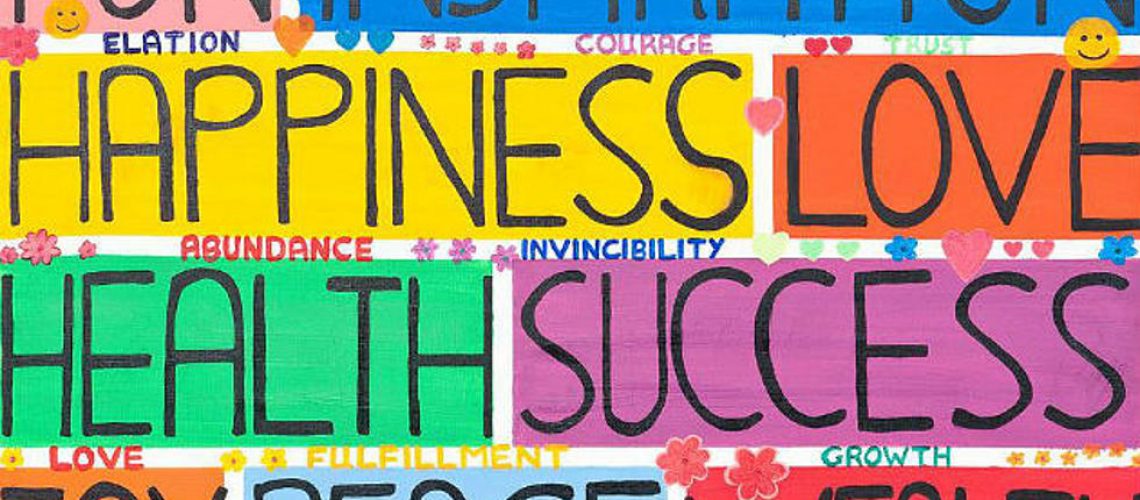Joy
Great joy comes when we are spontaneous and authentic, engaging in activities that we care about each day, either with friends or family. Joy is even found in some alone time, doing things in which one feels satisfied and fulfilled. Joy has the power to open our hearts, remove fear, instill hope and foster healing. Joy leads us to wisdom because it connects us to all that we are – our mind, heart, and spirit. Joy stimulates our immune system, increases our energy and gives us mental clarity. It helps us heighten our level of consciousness so we can more readily tap our inner wisdom. Instead of agonizing over decisions, we become more able to simply listen within and know what to do. As we open ourselves up to joy, we experience the breadth of human emotions, realize our connections to all life, feel compassion and dance lightly with the dramas of our daily lives. When we have the ability to access joy, we are more able to stay centered in the midst of life’s difficulties and find compassionate solutions to the problems and challenges of our lives and our society. Ultimate joy comes from moving beyond our senses to a deeper experience of stillness and inner knowing. When we develop our capacity for joy, it lives within us like a wellspring of awareness that heightens our ability to be intimate with others without fear.
HAPPINESS
Happiness is a mental or emotional state of well-being defined by positive or pleasant emotions ranging from contentment to intense joy. A variety of biological, psychological, religious and philosophical approaches have striven to define happiness and identify its sources. Happiness is made up of pleasure, engagement, and meaning. It involves both daily positive emotions and a global sense that life is worthwhile. People can accurately report their own levels of happiness What doesn’t make us happy — and why we think it will. Apparently, it is a characteristic of the American culture that, again and again, one is commanded and ordered to ‘be happy.’ But happiness cannot be pursued; it must ensue. One must have a reason to ‘be happy.’ Most of us have a mental list of what would make us happier. Our culture celebrates the pursuit of money, fame, good looks, material possessions, health, love, and power. Yet we’re often disappointed—even when we do get what we want. Research confirms that some of the things we think will make us happy don’t, and researchers are learning more and more about why that is. Having enough income to meet basic needs and live above the poverty level is very important to happiness. Beyond that, however, research suggests that more wealth does not translate to greater happiness. Why is this? Research suggests that we’re good at adapting; we’re bad at predicting; our brains are wired for negative emotions, and we’re looking in the wrong places. Humans are very good at adapting to changing circumstances. Researchers believe we have a “set point,” or baseline, of happiness that is partly determined by genetics. When something good happens to us, we’ll be happier for a while, but then adapt to our new situation and return to our set point. For example, getting a huge raise is a cause for celebration. After a while, your budget and lifestyle adjustments to the higher income. Your expectations for what you need, and your goals for what you want, change. Researchers call this ability to quickly adapt to new circumstances the “hedonic treadmill.” Some people try to find happiness in the latest and greatest gadgets,
its sources. Happiness is made up of pleasure, engagement, and meaning. It involves both daily positive emotions and a global sense that life is worthwhile. People can accurately report their own levels of happiness What doesn’t make us happy — and why we think it will. Apparently, it is a characteristic of the American culture that, again and again, one is commanded and ordered to ‘be happy.’ But happiness cannot be pursued; it must ensue. One must have a reason to ‘be happy.’ Most of us have a mental list of what would make us happier. Our culture celebrates the pursuit of money, fame, good looks, material possessions, health, love, and power. Yet we’re often disappointed—even when we do get what we want. Research confirms that some of the things we think will make us happy don’t, and researchers are learning more and more about why that is. Having enough income to meet basic needs and live above the poverty level is very important to happiness. Beyond that, however, research suggests that more wealth does not translate to greater happiness. Why is this? Research suggests that we’re good at adapting; we’re bad at predicting; our brains are wired for negative emotions, and we’re looking in the wrong places. Humans are very good at adapting to changing circumstances. Researchers believe we have a “set point,” or baseline, of happiness that is partly determined by genetics. When something good happens to us, we’ll be happier for a while, but then adapt to our new situation and return to our set point. For example, getting a huge raise is a cause for celebration. After a while, your budget and lifestyle adjustments to the higher income. Your expectations for what you need, and your goals for what you want, change. Researchers call this ability to quickly adapt to new circumstances the “hedonic treadmill.” Some people try to find happiness in the latest and greatest gadgets,
fashion and fanciest cars only to find that their “high” is only as short-lived as the next new model. Some try to find marital happiness by marrying as many times as they think they can find “a better love.” What are the factors that are keeping
us from realizing our goals of “being happy?”
Laziness
It sounds harsh but it is the truth. Most people don’t want to deal with reality because it would be an involved endeavor. There are some people who would rather stay unhappy and not be bothered with change because it takes effort. Why bother, right?
Ignoring that Little Voice
You know that little voice acts as your conscious but you choose to ignore it. You will come up with excuses that you are just overreacting or being too judgmental but the truth of the matter is that little voice is always right. Many people have problems facing the truth and they choose to ignore the reality of it because it is easier.
False Hopes
You believe (and hope) that things and situations will change for the better given time. It usually never does because YOU ARE THE CHANGE!!
Bad Communications
Communication is the key to every relationship. If you don’t speak up, then nobody will know what you want. A lack of communication is the cause of many arguments. Many people are such bad communicators that they can’t come to grips of how unhealthy their relationship/s truly may be. This is proven true even to our children. If you do not communicate with them about what you want or expect from them, how else do they know? No one is a mind reader. You also need to emphasize that you are not “kidding” when you are talking to them. Fun aside, you have to “say what you mean and mean what you say…ALL. THE. TIME.”
Comfortable
In a relationship, it’s easy to get comfortable because you are afraid of being alone. The truth is you’d rather be in an unhealthy relationship, than none at all.
Fear
If an individual is a product of a broken home, where they encountered a lot of family mistakes – they need to prove to themselves that they can break the cycle. It takes courage and determination to do so. #pursuitofhappiness
